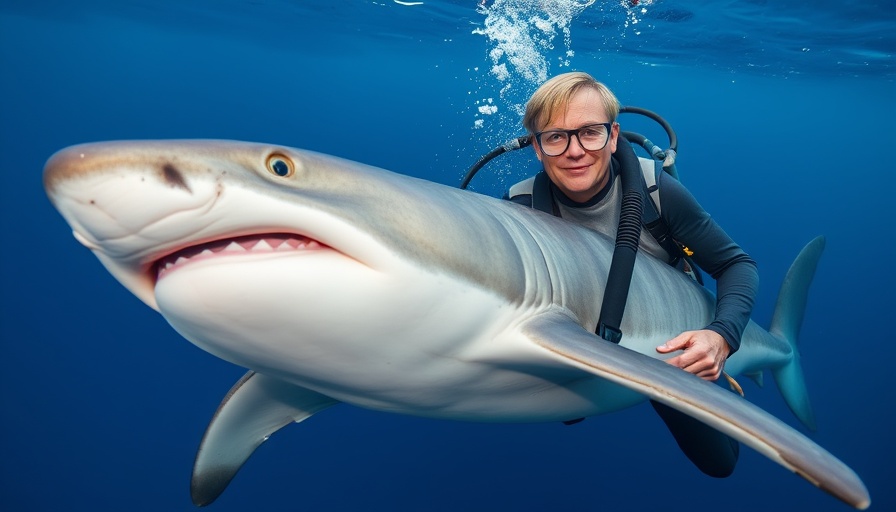
The Strains of Doing the Right Thing: A Diver's Journey
Tanner Mansell, a Florida shark diving guide, found himself at the center of a storm after attempting to rescue sharks caught on illegal longlines. In a world that often champions bravery, Mansell's heroic act led to unforeseen legal consequences that stripped him of his freedom and rights. The incident raises critical questions about the complexities of environmental protection laws and the real-life repercussions for those who take matters into their own hands.
Longlining: An Underrated Threat to Marine Life
Longlining, a fishing technique that uses extensive lines with baited hooks, poses a significant danger to non-target species like sharks and goliath groupers. These methods, often illegal in many jurisdictions, leave marine ecosystems vulnerable and highlight the urgent need for effective enforcement and awareness. According to conservationists, illegal fishing not only harms endangered species but disrupts entire marine food webs, exacerbating the challenges facing ocean biodiversity.
Personal Cost of Environmental Activism
For Mansell, the heavy toll of his actions is palpable. Despite receiving a presidential pardon for his legal troubles, he remains haunted by the fear of reprisal simply for intervening in an environmental crisis. His story is a poignant reminder that individuals can pay a heavy price for standing up against activities that threaten fragile ecosystems. This highlights the daunting reality that many environmental activists face today—they risk their livelihoods and, at times, their freedom, in pursuit of a noble cause.
The Role of Regulations in Conservation
Mansell’s experience illustrates the complexities of balancing regulatory authority with individual initiative in environmental conservation. In a rapidly changing world, skilled divers like Mansell often spearhead spontaneous efforts to protect wildlife. Yet, without clear legal guidelines and the support of environmental agencies, these efforts can lead to unintended consequences—like Mansell's brush with the law. The case underscores the necessity for better communication, public education on marine conservation measures, and effective policies that support rather than hinder those who aim to protect our oceans.
Moving Forward: Lessons from a Diver's Experience
Mansell’s story prompts a broader conversation regarding the role of ordinary citizens in environmental stewardship. As outdoor enthusiasts rally to protect natural habitats, the need for clear frameworks and community engagement becomes paramount. Greater collaboration between conservation agencies and local advocates could foster an environment where pro-activeness is encouraged rather than penalized.
The realities of Mansell’s experience are a clarion call for a reassessment of how we treat individuals who risk their safety and freedom for our planet's health. Understanding the interplay of law, conservation, and personal integrity is crucial as we navigate the future of our oceans.
 Add Row
Add Row  Add
Add 




Write A Comment